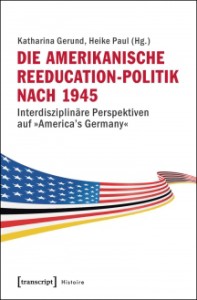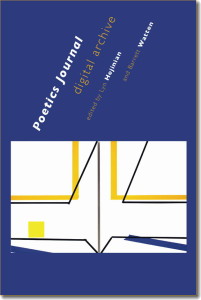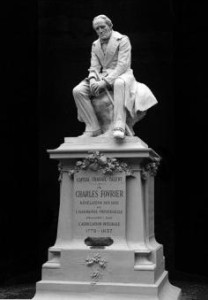Just published
in an interdisciplinary,
transnational essay collection
Barrett Watten, “Zero Hour/Stunde Null:
Destruction and Universals at Mid Century”
in Die Amerikanische Reeducation-Politik
Nach 1945: Interdisziplinäre Perspektiven
auf “America’s Germany,” Katharina Gerund
and Heike Paul, eds. (Bielefeld: transcript
Verlag, 2015); for more information click here
With Herbert Sirois, Michael Hochgeschwender,
Frank Mehring, Jeanpaul Goergen, Philipp Baur,
Reinhild Kreis, Dorottya Ruisz, Dieter Meindl,
Phillip Beard, Werner Sollors, Winfried Fluck
from the introduction:
“Barrett Watten problematisiert die Vorstellung einer Stunde Null als politisches und als ästhetisches Konzept aus der Perspektive eines “radical historicism,” der konsistente und wohlgeformte Erklärungen und Narrative zugunsten von Brüchen, Krisen und Kontingenzen in Frage stellt. Die Stunde Null wird als metahistorisches Ereignis verstanden, das vor allem hinsichtlich seiner verschiedenen Repräsentationen und deren kultureller Arbeit untersucht wird. Watten identifiziert retrospektive, antizipatorische und punktuelle Konstruktionen des historischen Moments in literarischen und visuellen Darstellungen und setzt diese in Beziehung zu dem historischen ‘Ereignis.’ Er untersucht exemplarisch die antizipierte Zerstörung als poetisches Prinzip in den Werken von William Carlos Williams sowie die retrospektive Konstruktion der Stunde Null in dem Film Judgement at Nuremberg (1961, Regie: Stanley Kramer) und in den Fotografien von Lee Miller. Er illustriert anhand dieser Beispiele seine zentrale These, dass Zerstörung die notwendige Vorbedingung des Universellen ist” (introduction, p. 15). [Translation t/k]













